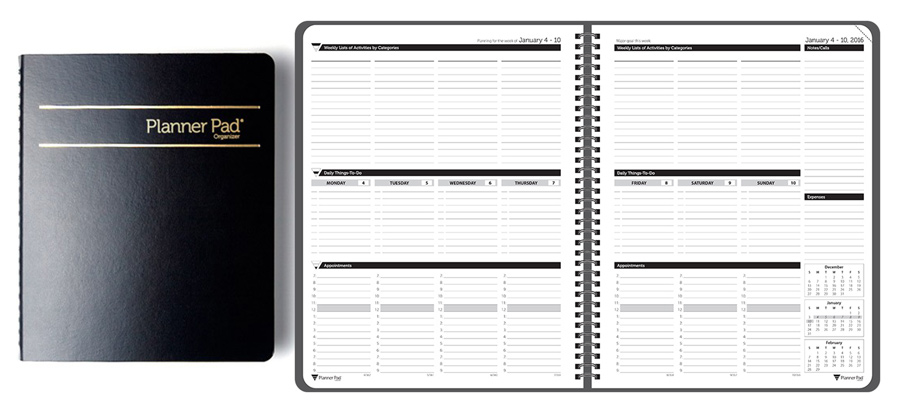Decluttering Your Life Series, Part II
When I work with clients to declutter and organize their spaces, I often find that there is another type of clutter lingering in the background that is contributing to the disorganization: mental clutter. Mental clutter can be as counterproductive as physical clutter.
If you are overwhelmed and unable to grasp how you will ever get it all done, the many “to do” lists swirling in your head could be the culprit. If you are anxious and can’t seem to move forward, fear of failure or past negative experiences could be hijacking your progress. If you are an over-stretched parent and pulled in too many directions between your work and home life, it could be a time/task management issue.
Identifying the source of your mental clutter is the first step towards being able to manage it. But managing (and in so doing, clearing) your mental clutter can also help you process your anxiety and give you the peace, direction and action you desire.
Following are my 3 favorite strategies to turn down the mental noise and quiet your mind.
Make a List

…or as I like to do, make lots of lists! I perform a weekly “brain dump” to get everything out of my head and onto a list that I can see, refer back to and add to as the week goes on. As I jot down all those calls I need to make, emails I need to write or projects I need to work on, I download everything by category. Here are my “to do” list categories, to give you an idea:
- My Business (tasks for my business to keep it running)
- My Clients (projects or research for my clients)
- Professional Development (courses or programs to build my business/knowledge in my field)
- Volunteer Roles (tasks for the various boards I sit on)
- My Family (they get their own list so I can stay on top of things I need to do for them)
- Me (this is the catch-all bucket for things I need to do, like doctor appointments to schedule, calls to make or thank you notes to write)
Creating your “to do” lists by category delivers 3 benefits:
- You are not overwhelmed by one long, random, meandering list that could include an important work assignment buried beneath a grocery store item you need to buy for dinner.
- Instead of wading through one long list to see what you should do next (which can be a huge waste of time in itself), you are able to view and prioritize your tasks by category and schedule the most important things first.
- You can group your tasks by type of task and schedule them accordingly, which is a combination of time blocking and task batching. For tips, see my blog on Scheduling Your Busy Life. For example, if you have some quality time at your computer, write all of those important emails during that time block. If you have to run several errands, do them all at once while you are out and about.

My favorite system to write everything down is the Planner Pad, which I describe in detail here. If paper is not your thing, there are equally as many task management apps (Wunderlist, Todoist, Trello, Tadabase, etc.) that can help you capture, categorize, prioritize and schedule your tasks. The key objective is that you need to get all of that out of your head and written down.
Process your thoughts

Another aspect of mental clutter is that pressing concern, guilt or frustration that seems to be on infinite “replay” in your head. I compare it to a broken record that just plays over and over and over. The best way to stop that? Keep a journal.
By having an audience for that broken record — your journal, not your mind — you are able to pour out your thoughts about that worry or regret that is driving you crazy. The act of writing, and especially, handwriting, is a wonderful outlet for your brain. The transfer of your thoughts and ideas through your hands whether on paper or an app is an incredibly powerful, and liberating, experience. And the best part about that? The problem can sometimes solve itself. Whatever was plaguing you doesn’t seem so major; whatever you were worried about now seems manageable; whatever big looming project you were dreading suddenly seems doable.
I discovered the power of journaling by following Julia Cameron’s methods described in The Artist’s Way: A Spiritual Path to Higher Creativity. Her course unlocks the artist in all of us, turns off the internal judge in our head and lets our creativity soar. By writing “morning pages,” three pages of whatever comes into your head that morning, you are processing everything from deep thoughts to mundane “to do” lists. I found that writing it all down was the beginning to figuring out that problem or solving that issue. And all that was left was inner peace.
Embrace Self-Care

The last step to clearing mental clutter is to engage in self-care. It’s like the instructions we hear on the airplane before takeoff: “Please place your oxygen mask on first before helping others.” Put yourself first, do things that are good for you and everything will suddenly seem so much better.
What can you do that would be a treat for yourself? Julia Cameron’s book encourages us to go on an “artist date” and do whatever sparks our interest or creativity. It turns off that broken record and lets you be free to soar and explore.
You probably know a doctor or lawyer who plays golf regularly — and you know why? All they think about for those 4 hours is chasing that small white ball down the fairway and dropping it in the hole. It’s like a 4-hour meditation practice that keeps them focused on one activity, while the other stressors of their jobs are put aside, to be dealt with at a later time. Compartmentalizing your thoughts. Brilliant strategy!

And how best to compartmentalize your thoughts? Meditation, a key practice to clear your mind. By pushing thoughts out of your head and focusing on your breath, you are living in the moment. It’s as if you have put a “Closed – Come Back Later” sign on your brain to keep those stressful thoughts out. And when you are open for business again, your mind will have a greater ability to focus and deal with those thoughts in their proper space and time. A meditation practice for even a few minutes a day will help you develop mindfulness, control your thoughts and become aware of the cues that may trigger your stress again.
Another way to turn down the noise in your head is to get outdoors and exercise. Take a walk, practice yoga by the ocean or go for a hike in beautiful surroundings. You are instantly given a new perspective of the world and where you are in it. This bigger picture of life also helps cast your issues in a new light — they might not seem so major, after all. You may even come up with a new approach to handling them and can, in the process, quiet your mind.

Finally, just being good to yourself can help reprogram your thoughts and clear the mental clutter. Turn off the exterior stimulation like screens and social media and tune into yourself, listen to how you feel and do what you are inspired to do. Take a hot bath, get a massage or curl up with a good book and cup of hot tea. Treating yourself — and putting yourself first — can be the elixir to finding inner peace.
Do you have any strategies that have helped you clear your mental clutter? Please offer them below so we can all learn from each other and make our lives that much better!
Also, if you missed it, enjoy Decluttering Your Life Series, Part I, where we focus on tips for Decluttering Your Stuff!





Leave a Reply
Want to join the discussion?Feel free to contribute!